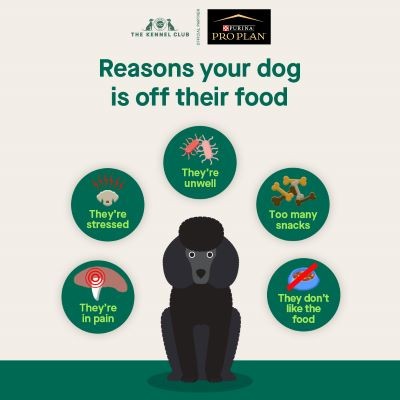It’s a common question among dog owners: Can Dogs Thrive Off Of One Food, or do they need variety in their diet? Understanding your dog’s nutritional needs is essential for their health and well-being. While some dogs do well on a single, high-quality food, others may benefit from some variation. This article explores the factors that influence a dog’s dietary needs and provides guidance on ensuring they receive the proper nutrition.
Why Your Dog Might Not Be Eating
Before diving into whether dogs can thrive on one food, it’s crucial to understand why a dog might refuse to eat in the first place. Several factors can contribute to a loss of appetite:
- Medical Reasons: Dental problems, stomach issues, organ problems, general illnesses, and medication side effects can all impact a dog’s desire to eat.
- Behavioral Reasons: Anxiety, stress, or changes in environment and routine can also affect appetite.
- Fussy Eating: Some dogs are simply picky eaters and may hold out for something more appealing.
- Food Quality: The food itself might be stale, spoiled, or simply unpalatable to your dog.
Alt text: A sad-looking dog turns its head away from a full food bowl, symbolizing a loss of appetite in canines.
The Monodiet Approach: Can Dogs Thrive on One Food?
The idea of feeding a dog the same food every day, known as a monodiet, can be perfectly acceptable and even beneficial if the food is:
- Complete and Balanced: The food must meet all of the dog’s nutritional requirements for their life stage (puppy, adult, senior). Look for an AAFCO (Association of American Feed Control Officials) statement on the packaging.
- High-Quality: Choose a food made with real meat, whole grains, and limited fillers.
- Suitable for Individual Needs: Consider your dog’s breed, size, age, activity level, and any health conditions.
If the chosen food meets these criteria, then a dog can absolutely thrive on one food. It ensures they consistently receive all the necessary nutrients without the risk of dietary imbalances caused by frequent changes.
Benefits of Sticking to One Food
- Digestive Stability: Dogs have sensitive digestive systems, and frequent food changes can lead to upset stomachs, diarrhea, or vomiting. Sticking to one food allows their digestive system to adapt and function optimally.
- Allergy Management: If your dog has food allergies or sensitivities, a monodiet makes it easier to identify and avoid problematic ingredients.
- Consistency: Knowing exactly what your dog is eating makes it easier to monitor their health and adjust their diet if needed.
When Variety Might Be Beneficial
While many dogs do well on a monodiet, there are situations where some variety might be helpful:
- Picky Eaters: If your dog is a fussy eater, offering different flavors or textures of the same high-quality food brand might encourage them to eat.
- Specific Health Conditions: Some health conditions may benefit from specific dietary changes recommended by a veterinarian.
- Supplementation: Adding certain supplements, like omega-3 fatty acids or probiotics, can enhance your dog’s diet and overall health. These can be offered as additions to their primary food.
The Importance of Reading Labels
Regardless of whether you choose a monodiet or incorporate some variety, it’s crucial to read food labels carefully. Look for:
- Named Meat Sources: The first ingredient should be a named meat source, such as chicken, beef, or lamb.
- Whole Grains or Complex Carbohydrates: These provide energy and fiber.
- Limited Fillers: Avoid foods with excessive amounts of corn, wheat, and soy.
- AAFCO Statement: This statement guarantees that the food meets the minimum nutritional requirements for dogs.
Transitioning to a New Food
If you decide to switch your dog’s food, it’s essential to do so gradually over 7-10 days. This allows their digestive system to adjust and minimizes the risk of digestive upset. Mix small amounts of the new food with their old food, gradually increasing the proportion of new food each day.
Alt text: A Labrador Retriever happily eats from its bowl, highlighting the importance of selecting a dog food that meets breed-specific needs.
Consulting Your Veterinarian
The best way to determine the ideal diet for your dog is to consult with your veterinarian. They can assess your dog’s individual needs and recommend a food that meets their specific requirements.
Contact your vet immediately if your dog:
- Hasn’t eaten anything in the last 24 hours
- Hasn’t eaten anything in the last 12 hours and is sick or has diarrhea
- Isn’t eating and is also not drinking
- Is losing weight
- Seems unusually tired
Conclusion
So, can dogs thrive off of one food? The answer is yes, as long as that food is a high-quality, complete, and balanced diet that meets their individual needs. While some dogs may benefit from variety, consistency is often key to maintaining digestive health and managing allergies. Always consult with your veterinarian to determine the best dietary approach for your furry friend. By understanding your dog’s nutritional needs and carefully selecting their food, you can help them thrive and live a long, healthy life.
